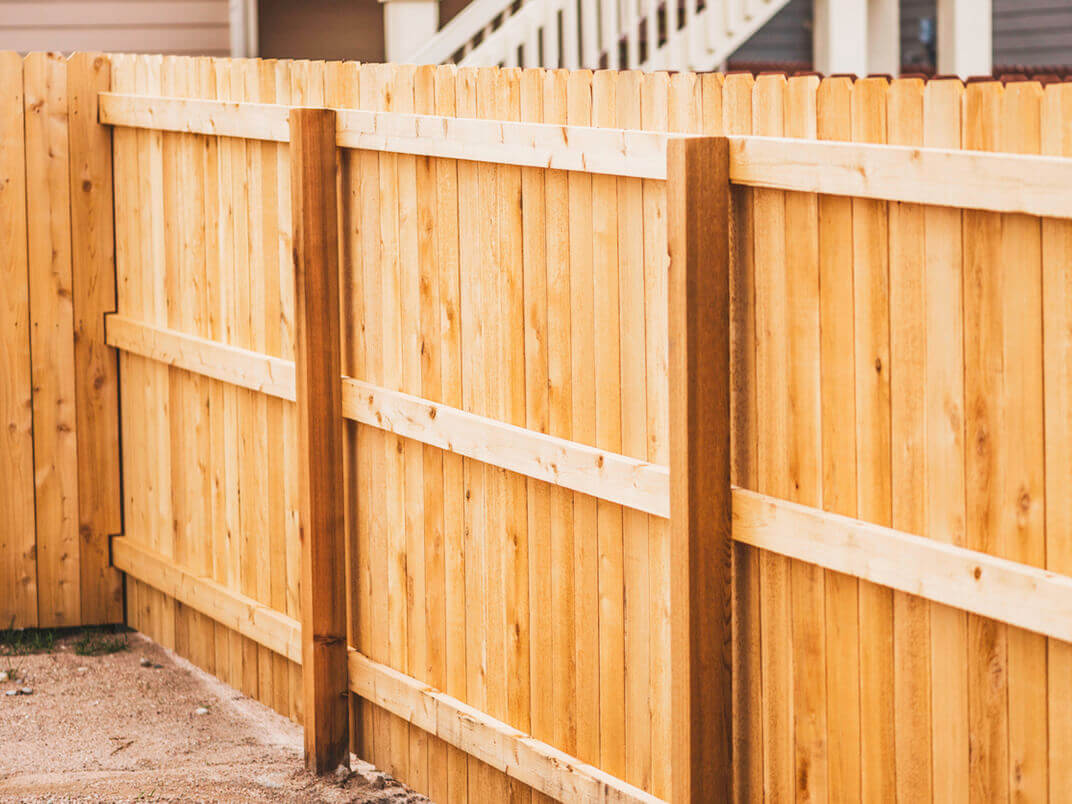All Categories
Featured

When planning to install a fence around your residential property, among the very first steps is comprehending the allowing needs in your location. While the procedure may appear straightforward, local laws can differ substantially depending on where you live. Protecting the correct licenses prior to starting the installment is important to avoid prospective penalties, disagreements with neighbors, and even having to remove your fencing. Here's what you require to understand about acquiring the necessary authorizations for your fencing installation.
Why Do You Required an Authorization for a Fencing? A license is often needed for fencing installations to guarantee conformity with regional structure codes, zoning legislations, and safety and security guidelines. Permitting assists local authorities maintain harmony in area aesthetics, safety and security, and ecological considerations. It likewise makes certain that the fencing does not conflict with utility lines or public rooms, which it complies with elevation and border constraints.

Typical Authorizations Needed for Fencing Installment. Building Permit. A lot of locations call for a structure authorization for fencing installation, specifically if the fence exceeds a particular elevation (generally over 6 feet) or is made from non-standard products. This authorization makes sure that your fencing abides by regional structure codes. In some locations, the structure department will evaluate the site to guarantee that the fencing satisfies safety and structural standards.
Zoning Authorization. Zoning permits are designed to guarantee that your fence sticks to neighborhood zoning laws, including troubles from residential property lines, easements, and rights-of-way. Zoning regulations differ from city to city, and sometimes, your fence may need to be established back a specific variety of feet from the pathway or road. A zoning license might likewise be needed if your fencing remains in a historic area or various other particularly designated locations.

Fencing Authorization. In some places, a particular "fence permit" may be required. Some cities restrict chain-link fencings in front lawns or have particular guidelines for personal privacy fences.
HOA Authorization. You might need authorization prior to mounting a fence if your home is part of a home owners association (HOA) HOA guidelines often consist of specific policies concerning the type, height, shade, and products for fencings to preserve the neighborhood's looks. HOA guidelines can be more stringent than city codes, so constantly check their standards before progressing.
Easement or Utility Permits. If your fence will certainly be near or across an easement (such as an energy easement), you might require to acquire authorization from the energy firm or various other entities that control the land. This is particularly important if you plan to mine fencing articles, as it guarantees you will not harm underground utilities like power, gas, or water lines.
Exactly How to Discover What Permits Are Needed. The most effective method to determine which licenses are required for your fence setup is to contact your regional structure division or metropolitan office. They can provide you with specific info concerning needs in your area. Here are a couple of actions you can take to learn:
Inspect the City or Region Site: Numerous regional federal governments give details concerning fence installment permits online. Look for building or zoning sections on their website. Call or Visit Resident Federal Government Offices: If the details is not easily available online, calling or going to the local office personally can clarify what's needed. Consult an Expert Specialist: If you're not sure or overloaded by the process, a neighborhood specialist or fencing setup business can help in browsing the permitting process, as they recognize with neighborhood guidelines. What Occurs If You Don't Get a Permit? Falling short to acquire the necessary authorizations can result in a range of effects. In several locations, you might deal with fines, and your fencing may be gotten to be gotten rid of. Furthermore, if you sell your home in the future, the absence of correct licenses might be a warning for buyers and influence the sale. Permitting ensures that your fence is compliant and aids prevent future problems.
Verdict. Prior to setting up a fence around your building, it's important to check whether an authorization is needed in your location. Building licenses, zoning licenses, HOA approval, and utility authorizations may all contribute in your fence setup procedure. Making the effort to research study and obtain the required authorizations will not only ensure that you're adhering to local guidelines, yet likewise assist protect your financial investment and preserve the honesty of your property.
Latest Posts
Experience Your Financial Partner at WyHy – Wyoming’s Best Banking Choice for Your Future
Published en
1 min read
Explore Your Financial Partner at WyHy – Top Benefits for Members
Published en
1 min read
Protect and Enhance Your Home with Weathercraft's House siding Providers
Published en
1 min read
More
Latest Posts
Experience Your Financial Partner at WyHy – Wyoming’s Best Banking Choice for Your Future
Published May 26, 25
1 min read
Explore Your Financial Partner at WyHy – Top Benefits for Members
Published May 25, 25
1 min read
Protect and Enhance Your Home with Weathercraft's House siding Providers
Published May 23, 25
1 min read